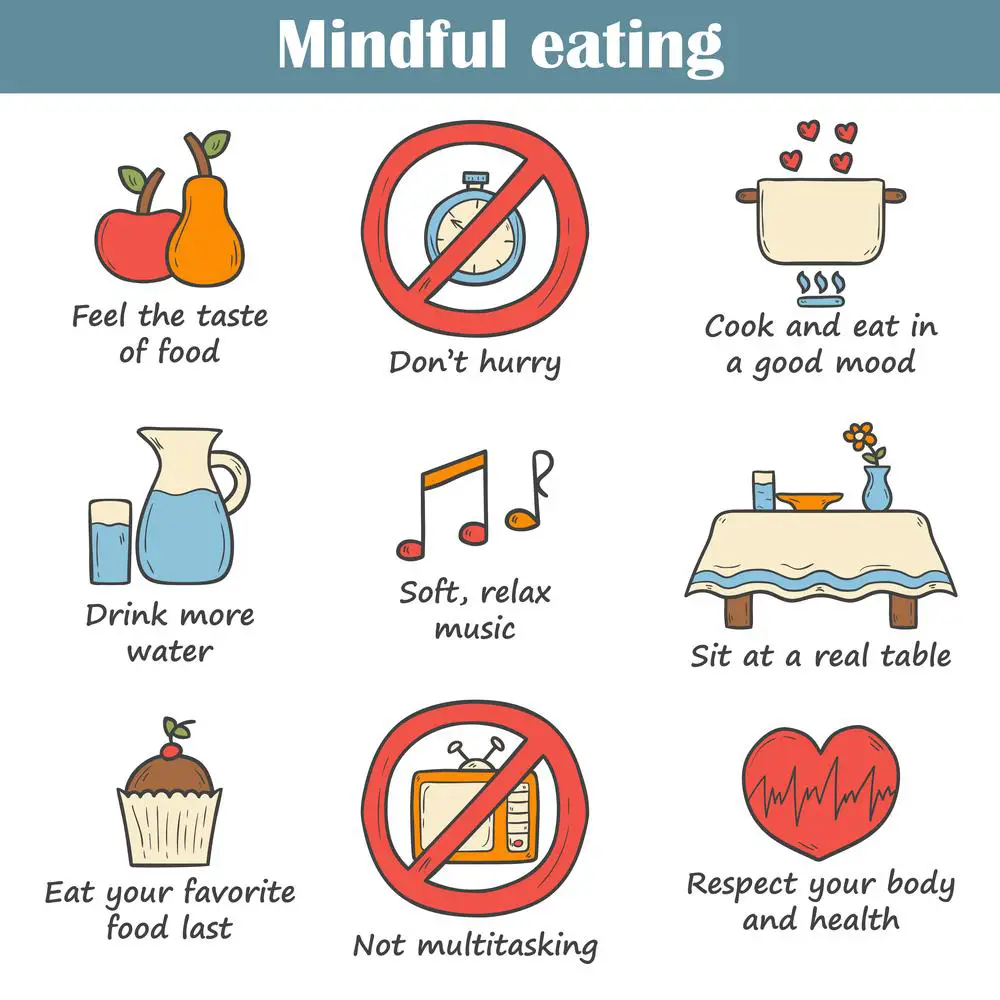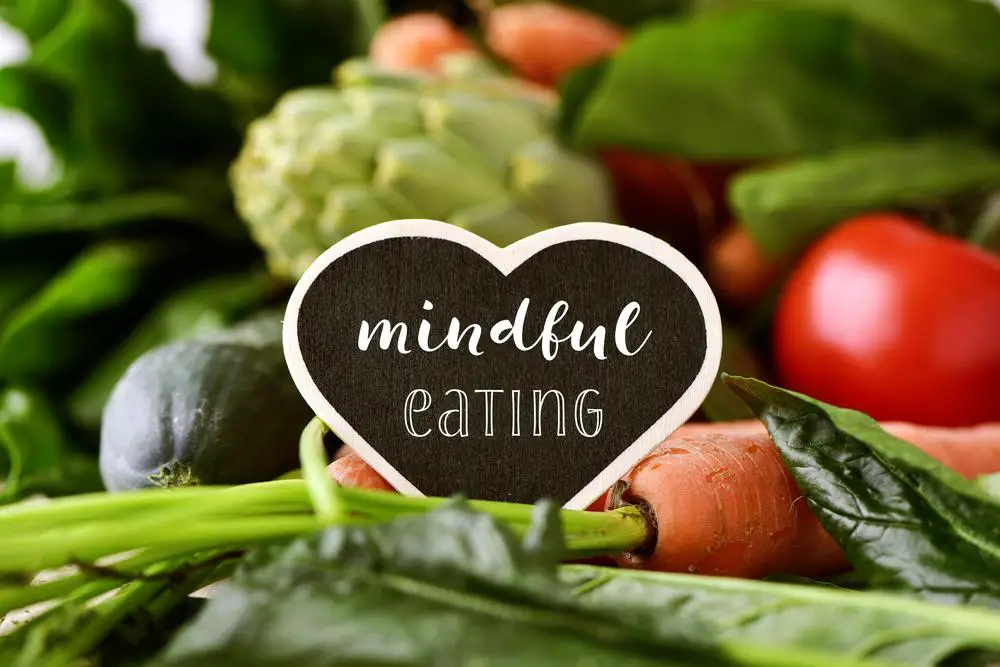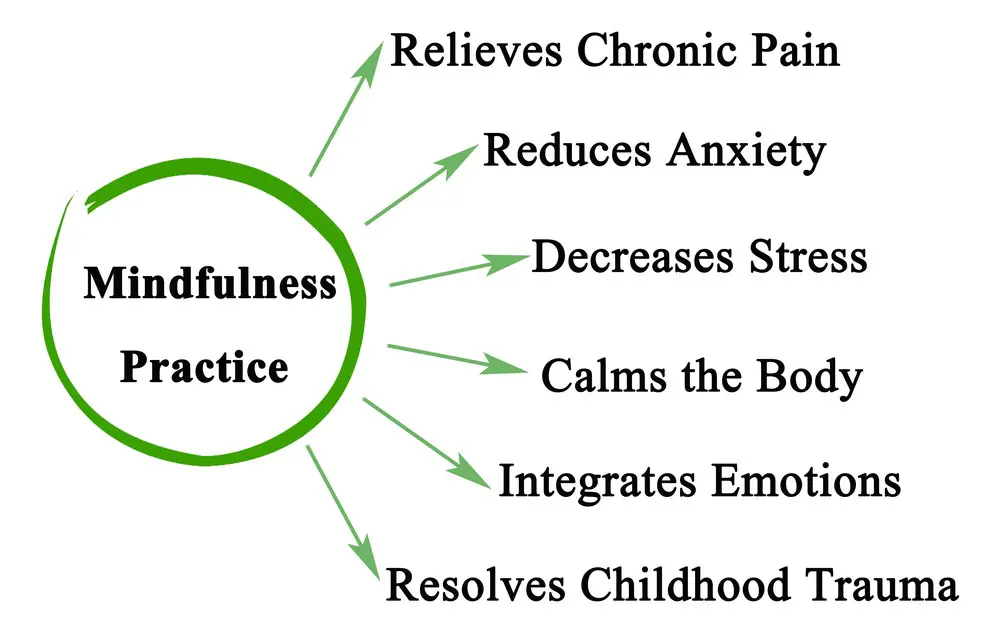As a BetterHelp affiliate, we receive compensation from BetterHelp if you purchase products or services through the links provided
Mindful eating is one of the newest, most refreshing approaches toward nourishment, turning each meal into a celebration of flavors, aromas, and textures. It transcends the act of merely eating, transforming it into an art where every bite is savored and every flavor is relished.
This journey towards conscious consumption enhances the pleasure derived from food and fortifies the foundations of holistic well-being and lasting wellness. It embraces intentionality and awareness, leading a balanced and wholesome life. This guide will help you cultivate conscious eating habits for lasting wellness.

The Pillars of Mindful Eating
Dive into the world of mindful eating by acquainting yourself with its core principles. Listening to the body’s hunger cues is a cornerstone, helping you understand your body’s unique nutritional needs.
In this act of mindfulness, distractions bow out, allowing you to fully immerse yourself in the culinary experience, enhancing your connection with the food that graces your plate. Here, healthy prepared meals can simplify your journey of mindful consumption.
These balanced and portion-controlled meals unburden you from the task of meal preparation, letting you focus on savoring each bite and nurturing a harmonious relationship with food.
The Impact of Mindfulness on Eating Habits
Embarking on the path of mindful eating can lead to several positive transformations. Your digestion revels in the calm embrace of awareness, enhancing the absorption of essential nutrients and maximizing the nourishment derived from every meal.
Beyond the physical realm, the seeds of mindfulness bloom in your choices, gently guiding you to healthier, nutrient-rich options. This intentional eating approach cultivates a mindset toward well-being, where each meal becomes an opportunity for self-discovery and joy.
Strategies for Developing Mindful Eating Habits
The path to mindful eating can be made easier with diverse strategies that infuse each mealtime with awareness, intentionality, and delight. Setting the right environment for meals emerges as a critical step.
Imagine transforming your dining space into a serene oasis where the chatter of distractions fades and the allure of your meal takes center stage. Additionally, eating slowly evolves as a cherished ritual, where each bite is savored. This thoughtful approach transcends the physical act of eating, making it a moment of connection, awareness, and profound enjoyment.
 Mindfulness and Meal Planning
Mindfulness and Meal Planning
Delve deeper into mindfulness by exploring its harmonious relationship with meal planning. A well-crafted meal plan creates a foundation of intentionality and awareness.
The thoughtful preparation and organization of meals can celebrate mindfulness, infusing each day with ease, balance, and nutritional harmony. Planning your meals transcends the boundaries of nutrition and becomes a mindful meditation.
The Lasting Benefits of Mindful Eating
Mindful eating can help in reducing overeating and binge eating episodes. It allows you to enjoy smaller portions while feeling fully satisfied.
This practice can aid in weight management, promoting a healthy weight range. It enhances the eating experience, leading to greater meal satisfaction. Your choices tend to become healthier, focusing more on nutritious and balanced meals.
It can also improve your relationship with food, leading to a more balanced and healthy lifestyle. Reducing rapid, mindless eating can contribute to consistent eating habits and improve overall wellness. It’s a practical, accessible approach for anyone seeking a healthier, more balanced relationship with food and eating.
 Embracing Mindfulness Beyond the Plate
Embracing Mindfulness Beyond the Plate
Expand the horizon of your mindful eating journey to embrace mindfulness in all dimensions of life. Observe how the tranquility and intentionality cultivated at the dining table extend into every facet of your life.
The enriched connection with food will help you cultivate a harmonious relationship with yourself, others, and the world around you. Discover the profound peace and boundless joy that flow from this holistic embrace of mindfulness.
You can incorporate mindfulness into daily activities. Practice mindful breathing or meditation to enhance focus and peace. Use mindful exercises like yoga or tai chi for physical and mental benefits.
It may also benefit you to allocate time for mindfulness in your daily schedule and observe the transformation in your approach to life’s various aspects. These practices can usher enhanced clarity, calmness, and well-being into your life, helping you navigate the complexities of life with grace and balance.
Nourish Your Life: The Pathway To Mindful Eating
Immerse yourself in mindful eating, a universe rich with flavors, balance, and profound well-being. Let each bite taken be a step toward holistic health, leading you to savor not only your meals but also the richness of life itself.
Embrace this beautiful mindfulness journey, letting the light of conscious eating guide you to radiant vitality, lasting wellness, and a life infused with joy, balance, and endless satisfaction.
 When to Seek Help: Spotting the Red Flags in Your Eating Habits
When to Seek Help: Spotting the Red Flags in Your Eating Habits
Even something as enriching as mindful eating can have its pitfalls if certain behaviors begin to overshadow the practice’s intent. It’s important to recognize when these habits may indicate underlying issues that require professional intervention. Here are some signs that your relationship with food may benefit from the guidance of a health professional:
- Persistent Discomfort or Guilt Around Eating: If you find that eating is frequently associated with guilt, shame, or anxiety, it’s worth reaching out for support.
- Preoccupation with Food or Dieting: Being constantly fixated on thoughts of food, dieting, or body image could suggest an imbalance that needs addressing.
- Ignoring Physical Cues: If you’re regularly eating beyond fullness or not allowing yourself to eat when hungry, it might be time to seek help.
- Isolation to Eat: Eating alone to hide the amount or type of food you’re eating is a warning sign.
- Food as a Sole Coping Mechanism: Relying on food as the primary way to handle emotions can indicate an unhealthy relationship with eating.
- Extreme Dietary Restrictions: Severely limiting food intake or cutting out entire food groups without medical advice can be harmful.
- Binge Eating: Consuming large quantities of food in a short period regularly can be a sign of a binge eating disorder.
If any of these signs resonate with you, it’s okay to ask for help. A registered dietitian or a mental health professional specializing in eating disorders can provide valuable support and guidance on your journey to a healthier relationship with food. Remember, seeking help is a sign of strength and an essential step in improving your overall well-being.
 Setting Goals and Celebrating Your Milestones in Mindful Eating
Setting Goals and Celebrating Your Milestones in Mindful Eating
Embarking on the journey of mindful eating is not just about making changes — it’s about setting achievable goals and recognizing the progress you make. Here’s how to set yourself up for success and acknowledge the strides you’re taking:
- Start Small: Begin with easily attainable goals. This could be as simple as eating one mindful meal weekly without distractions.
- Be Specific: Instead of vague ambitions like “eat healthier,” aim for precise targets like “include a vegetable with every dinner.”
- Embrace Patience: Mindful eating is a gradual process. Recognize that every step, no matter how small, is a move in the right direction.
- Record Your Journey: Keep a journal of your experiences. Note the moments you felt truly present during a meal and the times you struggled.
- Celebrate Non-Scale Victories: Progress isn’t just about weight; it’s about feeling more connected to your food and recognizing when you’re full.
- Seek Support: Share your goals with friends or family who can offer encouragement and celebrate your milestones with you.
- Reflect on Benefits: Regularly take stock of how mindful eating affects your well-being, like improved digestion or a more joyful attitude towards food.
By setting clear, attainable goals and taking the time to recognize the progress you make, you’ll find that the path to mindful eating becomes more rewarding and enjoyable. Each little victory is a building block toward a more mindful, healthier you. Don’t forget to give yourself a pat on the back for every goal reached and every progress made – you deserve it!
Navigating Intrusive Thoughts for a Mindful Eating Experience
Navigating intrusive thoughts while trying to engage in mindful eating can be challenging but with the right strategies, you can manage these unwelcome interruptions and enhance your mindful eating practice. Here’s your toolkit for keeping those pesky thoughts at bay and staying focused on the joy of eating with awareness.
Intrusive thoughts can be like uninvited guests at the dinner table, disrupting the peaceful practice of mindful eating. Here’s how they can affect your eating experience and some strategies to manage them:
- Intrusive Thoughts During Meals: You might find yourself ruminating over past events or worrying about future tasks instead of focusing on the flavors and textures of your meal.
- Judgmental Thoughts About Food: Thoughts like “I shouldn’t be eating this” can create a negative experience and detract from enjoying your food.
- Anxiety Over Eating the ‘Right’ Way: Striving for perfection in mindful eating can lead to anxiety and an all-or-nothing mindset, which is counterproductive.
Here’s how you can gently navigate these thoughts and maintain your commitment to mindful eating:
- Acknowledge and Accept: Recognize that intrusive thoughts are a typical human experience. Do not judge yourself for them; instead, observe their presence without engaging.
- Gentle Redirect: When you notice your mind wandering, acknowledge the thought and then bring your focus back to the meal—perhaps to the color, aroma, or a specific aspect of the flavor.
- Breathing Exercises: If intrusive thoughts persist, pause for a brief breathing exercise. Inhale deeply and exhale slowly to ground yourself in the present moment.
- Practice Compassion: Treat yourself with kindness. If a meal doesn’t go as mindfully as you’d hoped, remind yourself that it’s okay and there’s always the next meal to try again.
- Mindfulness Outside Meals: Strengthen your mindfulness practice outside of eating by engaging in regular meditation or yoga. This can improve your ability to stay present during meals.
- Seek Professional Guidance: If intrusive thoughts are overwhelming and persistent, consider seeking the help of a mental health professional. They can provide strategies to manage these thoughts more effectively.
Incorporating these approaches can help you reclaim the joy and intentionality of mindful eating, even when intrusive thoughts try to take the spotlight. Remember, it’s about progress, not perfection. With practice and patience, you can enjoy the art of mindful eating in all its glory, one bite at a time.
- Stress Management: What is the Relationship Between Stress and Addiction? - June 28, 2024
- Exploring Techniques to Maintain a Healthy Lifestyle without Drugs - May 28, 2024
- How Acupuncture Helps Treat Chronic Fatigue Syndrome - May 28, 2024
This site contains affiliate links to products. We will receive a commission for purchases made through these links.


 Mindfulness and Meal Planning
Mindfulness and Meal Planning Embracing Mindfulness Beyond the Plate
Embracing Mindfulness Beyond the Plate When to Seek Help: Spotting the Red Flags in Your Eating Habits
When to Seek Help: Spotting the Red Flags in Your Eating Habits Setting Goals and Celebrating Your Milestones in Mindful Eating
Setting Goals and Celebrating Your Milestones in Mindful Eating

